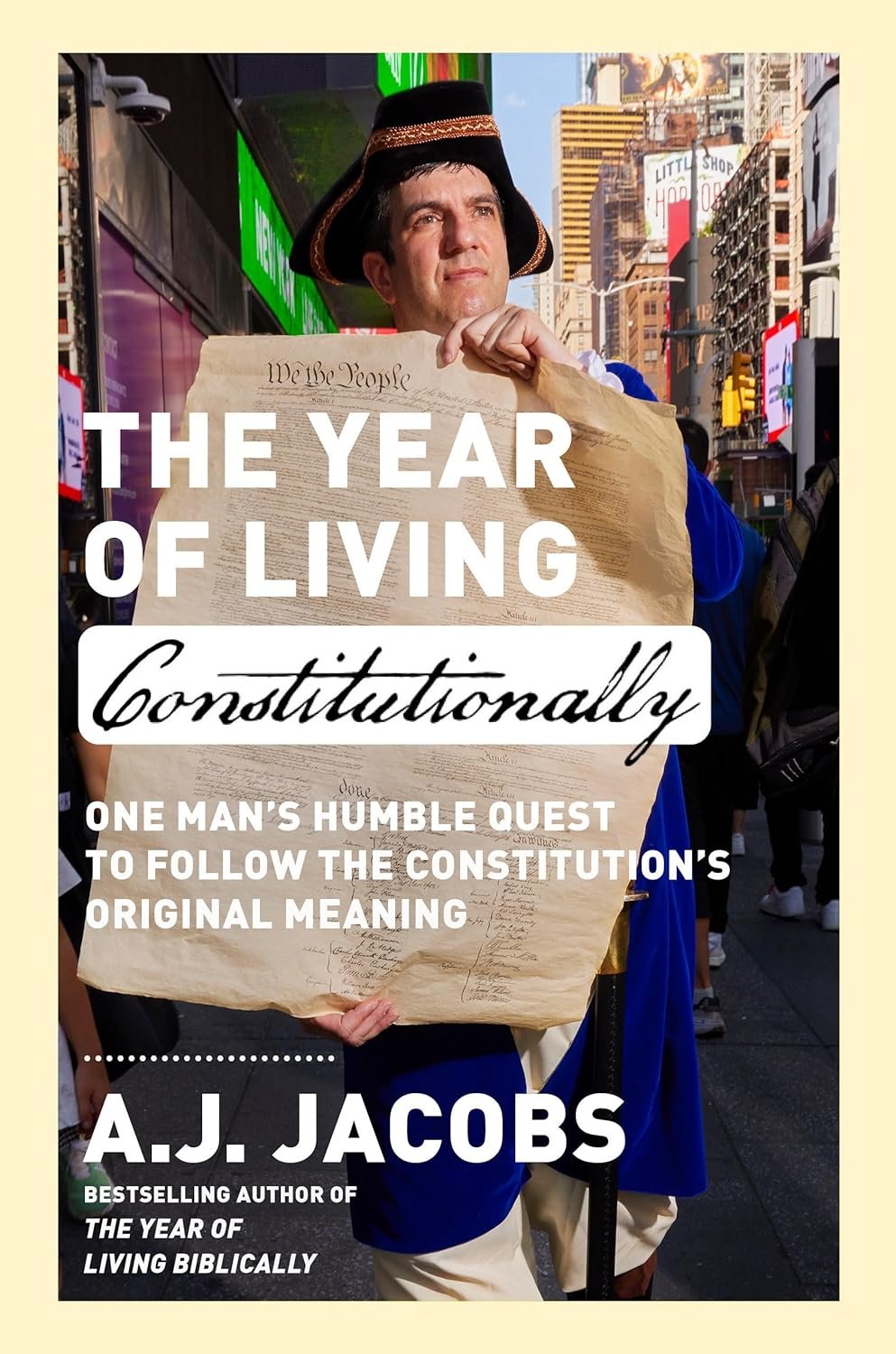The Year of Living Constitutionally: One Man’s Humble Quest to Follow the Constitution’s Original Meaning
A Journey of Literal Interpretation: A Review of “The Year of Living Constitutionally” by A.J. Jacobs
A.J. Jacobs, known for his quirky and thought-provoking experiments, embarks on a unique adventure in “The Year of Living Constitutionally.” He attempts to live by the original meaning of the U.S. Constitution in its entirety for a year, documenting the hilarious, frustrating, and thought-provoking consequences of such a literal interpretation.
Strengths:
- Humor and Entertainment: Jacobs’ engaging writing style and self-deprecating humor make the book entertaining and lighthearted, despite dealing with complex legal and historical concepts.
- Thought-Provoking Discussion: While not intended as a serious legal analysis, the book sparks critical thinking and conversation about the Constitution’s interpretation, its evolving meaning, and its relevance in today’s world.
- Historical Insights: Jacobs’ exploration sheds light on the historical context and intentions behind the Constitution’s framers, offering a fresh perspective on this foundational document.
Considerations:
- Selective Interpretation: Critics argue that Jacob’s approach cherry-picks and simplifies aspects of the Constitution, potentially misrepresenting its true meaning and complexities.
- Limited Applicability: Attempting to live by the original interpretation in its entirety raises questions about practicality and its relevance in the modern world, potentially diminishing the book’s overall impact.
- Superficiality: While the book sparks conversation, some readers might find the exploration of certain aspects superficial and lacking in-depth analysis, particularly regarding the legal and historical implications of Jacobs’ actions.
Overall: “The Year of Living Constitutionally” is an entertaining and thought-provoking read that offers a unique perspective on the U.S. Constitution. While the literal interpretation approach raises questions and might not be taken as a serious legal or historical analysis, it serves as a valuable starting point for further exploration and discussion about the meaning and importance of this cornerstone document in the context of a changing world.
Recommendation: Recommended for readers seeking an accessible and entertaining introduction to the Constitution, those interested in thought-provoking discussions about its interpretation and relevance, and individuals who enjoy A.J. Jacobs’ humorous and engaging writing style. Be prepared for a lighthearted approach and acknowledge the limitations of the literal interpretation method for a full understanding of the Constitution’s complexities.

